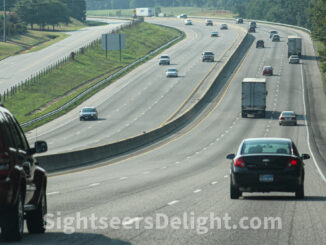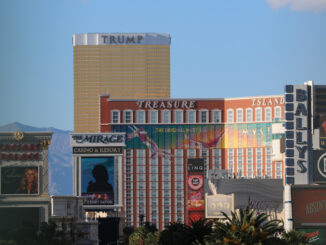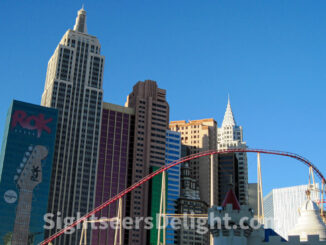
(The Center Square) – Las Vegas saw an increase in hotel room occupancy and rates during Super Bowl week and a hangover of decreased occupancy and rates in the days after.
But the Las Vegas Grand Prix weekend saw decreased occupancy in the week leading up to the race and a slight increase on Saturday, according to an analysis by Berry College Professor of Economics Frank Stephenson.
The analysis comes as Jeremy Aguero of Las Vegas-based Applied Analysis claimed to the Las Vegas Convention and Visitors Authority board of directors that the race had a $1.5 billion economic impact and the Super Bowl had a $1 billion impact on the city, the Las Vegas Review-Journal reported.
Aguero’s marketing firm is hired to produce numbers for groups looking to push public subsidies for Las Vegas events and professional sports such as Allegiant Stadium, the grand prix and more than $380 million in state subsidies approved in a special session for a potential stadium for the Oakland Athletics at the site of the now-closed Tropicana Las Vegas.
Economists have pushed back strongly on marketing economic impact reports that are part of a “cottage industry” used to secure public funding for professional sports stadiums as an attempt to push public funding with false numbers.
Clark County also produced a report on the costs and benefits of hosting the Las Vegas Grand Prix, including information provided by Aguero, after putting $40 million into the event.
Stephenson has studied hotel numbers related to large sporting events for years, including writing a paper on hotel impacts of Super Bowls, and said that the Las Vegas Super Bowl numbers showed a 3.5% increase year over year in room rentals for the three-day Super Bowl weekend and a 6% drop on Monday and Tuesday afterward, part of a “hangover effect.”
Rooms rates for the weekend were up $300 per night, meaning between the weekend and hangover, hotel revenue was up around $150 million.
The gain in hotel rentals was smaller than normal for a Super Bowl but the revenue gains were larger, Stephenson said.
“I’ll take the under on the $1B,” Stephenson said on the Super Bowl’s actual impact, noting that the additional hotel revenue heads to the hotel’s corporate owners and does not remain in Las Vegas to be re-spent as economic impact reports often claim.
The grand prix data, however, was not as positive. Monday, Tuesday and Wednesday before the race saw occupancy down 20%, Thursday and Friday were down around 10% year over year and only Saturday was up 3% year over year to 80% occupancy.
Room rates on Saturday were an average $500 per night, meaning hotel revenue was up between $60 million and $70 million on Saturday but down the rest of the week.
“The whole week leading up to it, the numbers were really anemic,” Stephenson said. “I guess some people showed up for the race itself but whatever modest gains there were were almost certainly offset by the whole week leading up to it.”
Stephenson is working at a larger look at all Las Vegas sporting events at Allegiant Stadium.
He said that the Saturday two weekends after the Super Bowl on Feb. 24 had a 10 percentage point higher occupancy rate in Las Vegas but the room rates were not higher. That weekend had the Rock ‘n’ Roll Las Vegas marathon, Bad Bunny in concert and the start of the International Builders’ Show at the Las Vegas Convention Center.
— Jon Styf, The Center Square
This article was published by The Center Square and is republished here with permission. Click here to view the original.





